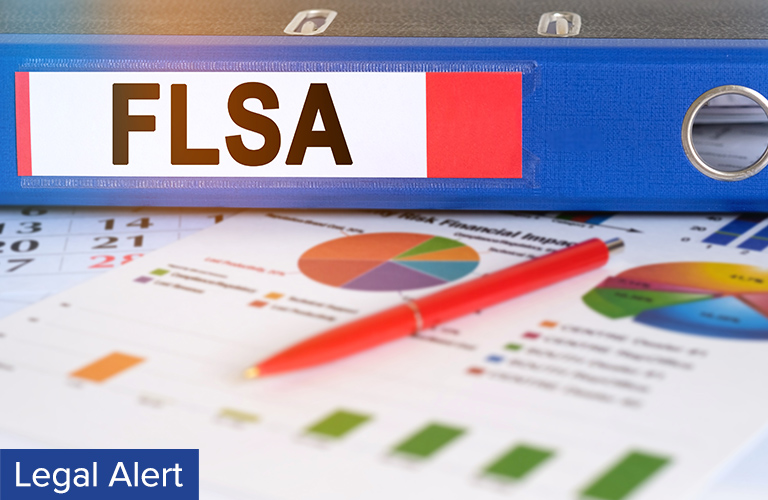
On December 31, 2020, the U.S. Department of Labor (“DOL”) issued two opinion letters: one regarding travel time for partial telework days for non-exempt employees and one regarding overtime payments for live-in caregiver employees.
Travel Time for Partial Telework Days
In the first opinion letter, the DOL addressed travel time for employees who work partial telework days. The Fair Labor Standards Act (“FLSA”) generally requires employers to compensate non-exempt employees for the period between an employee’s first and last principal activities and an employee’s travel time from worksite-to-worksite. In the opinion letter, the DOL responded to a question regarding whether an employer must compensate an employee for travel time where the employee teleworks part of the day, works at an office part of the day, and has time to perform certain personal tasks in between the two. The DOL opined that travel time is not compensable when an employee stops performing compensable work and is then able to use time for his or her own purposes before the employee begins performing compensable work at another location. For example, if a non-exempt employee who normally works from 8:00 a.m. to 4:30 p.m. works from 8:00 a.m. to 1:30 p.m. in the office, leaves the office for a parent-teacher conference at the employee’s child’s school, and then drives home to work the rest of the workday at the employee’s home, the employee would not need to be compensated for the time between 1:30 p.m. and the time the employee began working after arriving home. The DOL explicitly stated that this opinion is based on the fact the employee is not required to perform work at any particular time and has broken up the work day to allow for personal activities in between performing compensable work.
Overtime Payments for Live-in Caregiver Employees
In the second opinion letter, the DOL addressed overtime payments for live-in caregivers whose hours are difficult to determine during the COVID-19 pandemic. In the specific example in the letter, the employer expects employees perform compensable work for the entire shift and the employer and employees have agreed that meal and sleep periods (up to 8 hours per day) are not compensable. The employer acknowledged that work-related interruptions may occur and the employer pays the employee for those hours worked. Additionally, the employer and employees agreed upon an overtime premium equal to one-and-one-half times the hourly rate of the employee. The employer pays the overtime premium for hours worked over 40 hours in the workweek and for any hours worked over 8 in a workday.
Under the FLSA, an employer may exclude hours worked in excess of 40 hours in a workweek or in excess of 8 hours in a workday from the regular rate as an overtime premium. The extra compensation in excess of 40 hours in a workweek or in excess of 8 hours in a workday qualifies as an overtime premium. Here, the DOL found that the employer was properly calculating the overtime premium based on the agreed-upon premium of one-and-one-half times the hourly rate of the caregiver. Because the employer was providing additional compensation as appropriate for the caregivers, the overtime payments were consistent with FLSA’s overtime provisions.
These opinion letters are issued based exclusively on the specific facts presented to the DOL by the requester. However, these opinion letters may provide guidance to employers, and, therefore, employers should review their policies and pay practices in light of this new guidance to ensure compliance with the FLSA. State wage and hour laws may also apply, depending on the jurisdiction in which the work is performed. If you have any questions regarding the issues raised in this client alert, please contact your Labor and Employment counsel at Smith, Gambrell & Russell, LLP.

